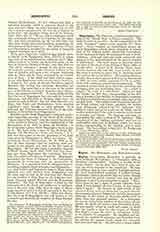

Hegesippus, THE PSEUDO-, a fourth-century translator of the “Jewish War” of Flavius Josephus. The name is based on an error. In the manuscripts of the work “Iosippus” appears quite regularly for “Josephus” From Iosippus an unintelligent reviser derived Hegesippus, which name, therefore, is merely that of the original author, ignorantly transcribed. In the best manuscripts, the translator is said to be St. Ambrose. Although formerly much contested, this claim is today acknowledged by the greater number of philologists. The work began to circulate about the time of the death of the Bishop of Milan (398), or shortly after. A letter of St. Jerome (Epist. lxxi), written between 386 and 400, bears witness to this. But there is nothing to prove that St. Ambrose wrote this work at the end of his life. The various allusions, notably that to the conquest of Britain by Theodosius (c. 370) are more readily explained if it be an earlier work of St. Ambrose, antedating his episcopate. The translator worked with great freedom, curtailing and abridging here and developing there. As a whole it suggests the work of a rhetorician. There are only five books, the first four corresponding to the first four of Josephus, but the fifth of Hegesippus combines the fifth and sixth books of Josephus, and a part of the seventh book. The authors most frequently imitated are Virgil, Sallust, and Cicero, precisely the writers most frequently imitated by St. Ambrose. The Bible is rarely quoted or made use of, which can be readily understood if the work is anterior to his career as preacher and bishop. The language and style are perceptibly the same as those of St. Ambrose. This translation of the “Bellum Judaicum” must not be confounded with that of Rufinus, which has seven books corresponding to the original, and is more literal. The best edition is that of C. F. Weber and J. Caesar (Marburg, 1864).
PAUL LEJAY

